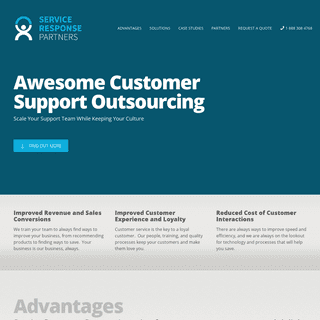Are you over 18 and want to see adult content?
More Annotations

A complete backup of flughafen-zuerich.ch
Are you over 18 and want to see adult content?

A complete backup of defesabrasil.com
Are you over 18 and want to see adult content?

A complete backup of shiftinglanes.com
Are you over 18 and want to see adult content?

A complete backup of serviceresponsepartners.com
Are you over 18 and want to see adult content?

A complete backup of bangtan-sonyeon-scans.tumblr.com
Are you over 18 and want to see adult content?

A complete backup of awesomepennystocks.com
Are you over 18 and want to see adult content?
Favourite Annotations

A complete backup of https://jessicurl.com
Are you over 18 and want to see adult content?

A complete backup of https://amba-hotel.com
Are you over 18 and want to see adult content?

A complete backup of https://travellers-autobarn.com.au
Are you over 18 and want to see adult content?

A complete backup of https://iteawww.org
Are you over 18 and want to see adult content?

A complete backup of https://mitchellandness.com
Are you over 18 and want to see adult content?

A complete backup of https://wmhost.ru
Are you over 18 and want to see adult content?

A complete backup of https://womenzmag.com
Are you over 18 and want to see adult content?

A complete backup of https://battlechasers.com
Are you over 18 and want to see adult content?

A complete backup of https://firstcarrental.co.za
Are you over 18 and want to see adult content?

A complete backup of https://wupload.com
Are you over 18 and want to see adult content?

A complete backup of https://nforcershq.com
Are you over 18 and want to see adult content?

A complete backup of https://usp.ac.jp
Are you over 18 and want to see adult content?
Text
GRADING THE STATES
FLORIDA - TREATMENT ADVOCACY CENTER Public Psychiatric Beds in Florida. A minimum of 50 beds per 100,000 people is considered necessary to provide minimally adequate treatment for individuals with severe mental illness. Like every state, Florida fails to meet this minimum standard. Beds in 2016. Beds in 2010. Beds lost or gained. Beds per 100,000 people. Census of forensic patients.LAURA'S LAW
Laura's Law. Laura's Law is California’s state law that provides community-based, assisted outpatient treatment (AOT) to a small population of individuals who meet strict legal criteria and who – as a result of their mental illness – are unable to voluntarily access community mental health services. The law is named for LauraWilcox
TENNESSEE - TREATMENT ADVOCACY CENTER A minimum of 50 beds per 100,000 people is considered necessary to provide minimally adequate treatment for individuals with severe mental illness. Like every state, Tennessee fails to meet this minimum standard. Beds in 2016. Beds in 2010. Beds lost or gained. Beds per 100,000 people. Census of forensic patients. % of all beds occupiedforensic.
MICHIGAN - TREATMENT ADVOCACY CENTER A minimum of 50 beds per 100,000 people is considered necessary to provide minimally adequate treatment for individuals with severe mental illness. Like every state, Michigan fails to meet this minimum standard. Beds in 2016. Beds in 2010. Beds lost or gained. Beds per 100,000 people. Census of forensic patients. % of all beds occupiedforensic.
GEORGIA - TREATMENT ADVOCACY CENTER Public Psychiatric Beds in Georgia. A minimum of 50 beds per 100,000 people is considered necessary to provide minimally adequate treatment for individuals with severe mental illness. Like every state, Georgia fails to meet this minimum standard. Beds in 2016. Beds in 2010. Beds lost or gained. Beds per 100,000 people. Census of forensic patients. MARYLAND - TREATMENT ADVOCACY CENTER A minimum of 50 beds per 100,000 people is considered necessary to provide minimally adequate treatment for individuals with severe mental illness. Like every state, Maryland fails to meet this minimum standard. Beds in 2016. Beds in 2010. Beds lost or gained. Beds per 100,000 people. Census of forensic patients. % of all beds occupiedforensic.
WHAT CAN YOU DO IF SOMEONE WITH A SERIOUS MENTAL ILLNESS Treatment Advocacy Center (www.treatmentadvocacycenter.org) Backgrounder: What Can You Do If Someone with a Serious Mental IllnessRefuses Treatment?
COMPETENCY RESTORATION VERSUS PSYCHIATRIC TREATMENT The process of competency restoration may be unfamiliar to most, but it is an important one because it overlaps the mental health treatment system and the criminal justice system. It is a process that we highlighted in our report, Emptying the 'New Asylums', because there is a tremendous backlog of people in jails who require competency restoration – that is, people with mental illnesses TREATMENT ADVOCACY CENTERAOTFIXING THE SYSTEMEVIDENCE & RESEARCHKEY ISSUESWHO WE AREWHAT YOU CAN DO The Treatment Advocacy Center is a national nonprofit organization dedicated to making treatment possible for severe mental illness. The organization promotes laws, policies and practices for the delivery of psychiatric care and supports the development of innovative treatments for and research into the causes of severe and persistent psychiatric illnesses, such as schizophrenia and bipolarGRADING THE STATES
FLORIDA - TREATMENT ADVOCACY CENTER Public Psychiatric Beds in Florida. A minimum of 50 beds per 100,000 people is considered necessary to provide minimally adequate treatment for individuals with severe mental illness. Like every state, Florida fails to meet this minimum standard. Beds in 2016. Beds in 2010. Beds lost or gained. Beds per 100,000 people. Census of forensic patients.LAURA'S LAW
Laura's Law. Laura's Law is California’s state law that provides community-based, assisted outpatient treatment (AOT) to a small population of individuals who meet strict legal criteria and who – as a result of their mental illness – are unable to voluntarily access community mental health services. The law is named for LauraWilcox
TENNESSEE - TREATMENT ADVOCACY CENTER A minimum of 50 beds per 100,000 people is considered necessary to provide minimally adequate treatment for individuals with severe mental illness. Like every state, Tennessee fails to meet this minimum standard. Beds in 2016. Beds in 2010. Beds lost or gained. Beds per 100,000 people. Census of forensic patients. % of all beds occupiedforensic.
GEORGIA - TREATMENT ADVOCACY CENTER Public Psychiatric Beds in Georgia. A minimum of 50 beds per 100,000 people is considered necessary to provide minimally adequate treatment for individuals with severe mental illness. Like every state, Georgia fails to meet this minimum standard. Beds in 2016. Beds in 2010. Beds lost or gained. Beds per 100,000 people. Census of forensic patients. MICHIGAN - TREATMENT ADVOCACY CENTER A minimum of 50 beds per 100,000 people is considered necessary to provide minimally adequate treatment for individuals with severe mental illness. Like every state, Michigan fails to meet this minimum standard. Beds in 2016. Beds in 2010. Beds lost or gained. Beds per 100,000 people. Census of forensic patients. % of all beds occupiedforensic.
MARYLAND - TREATMENT ADVOCACY CENTER A minimum of 50 beds per 100,000 people is considered necessary to provide minimally adequate treatment for individuals with severe mental illness. Like every state, Maryland fails to meet this minimum standard. Beds in 2016. Beds in 2010. Beds lost or gained. Beds per 100,000 people. Census of forensic patients. % of all beds occupiedforensic.
WHAT CAN YOU DO IF SOMEONE WITH A SERIOUS MENTAL ILLNESS 1 | Page Treatment Advocacy Center (www.treatmentadvocacycenter.org) Backgrounder: What Can You Do If Someone with a Serious Mental IllnessRefuses Treatment?
COMPETENCY RESTORATION VERSUS PSYCHIATRIC TREATMENT The process of competency restoration may be unfamiliar to most, but it is an important one because it overlaps the mental health treatment system and the criminal justice system. It is a process that we highlighted in our report, Emptying the 'New Asylums', because there is a tremendous backlog of people in jails who require competency restoration – that is, people with mental illnesses PODCASTS - TREATMENT ADVOCACY CENTER TREATMENT ADVOCACY CENTER. 200 North Glebe Road, Suite 801 Arlington, Virginia 22203 Phone: (703)294-6001 Fax: (703)294-6010. info@treatmentadvocacycenter.org ASSISTED OUTPATIENT TREATMENT Assisted Outpatient Treatment (AOT) is the practice of providing outpatient treatment under civil court order to individuals with SMI who have demonstrated difficulty engaging with treatment on a voluntary basis. When systematically implemented and adequately resourced, AOT can dramatically reduce hospitalization, criminalization and other RESEARCH WEEKLY: TREATING POST-TRAUMATIC STRESS DISORDER RESEARCH WEEKLY: Treating Post-Traumatic Stress Disorder in Individuals with Severe Mental Illness By Elizabeth Sinclair Hancq (June 9, 2021) People with severe mental illness are especially vulnerable to being victimized.Such victimization can involve theft of clothing or money, violence, sexual assault or emotional abuse. Women who have severe psychiatric disease are especially vulnerable. RESEARCH WEEKLY: SMOKING INTENSITY INCREASES DURING COVID RESEARCH WEEKLY: Smoking Intensity Increases During COVID-19 for People with Severe Mental Illness By Kelli South (June 2, 2021) Inequalities in smoking behaviors between people with severe mental illness and people without continued to increase during the COVID-19 pandemic, according to a new study published in BJ Psych Open.While smoking rates and quantity consumed has historically beenLAURA'S LAW
Laura's Law. Laura's Law is California’s state law that provides community-based, assisted outpatient treatment (AOT) to a small population of individuals who meet strict legal criteria and who – as a result of their mental illness – are unable to voluntarily access community mental health services. The law is named for LauraWilcox
GEORGIA - TREATMENT ADVOCACY CENTER Public Psychiatric Beds in Georgia. A minimum of 50 beds per 100,000 people is considered necessary to provide minimally adequate treatment for individuals with severe mental illness. Like every state, Georgia fails to meet this minimum standard. Beds in 2016. Beds in 2010. Beds lost or gained. Beds per 100,000 people. Census of forensic patients. INITIATING COURT-ORDERED ASSISTED TREATMENT Initiating Court-Ordered Assisted Treatment Inpatient, Outpatient and Emergency Hospitalization Standards by State This chart captures the most essential information about who may initiate proceedings leading to court-ordered treatment NEVADA - TREATMENT ADVOCACY CENTER Public Psychiatric Beds in Nevada. A minimum of 50 beds per 100,000 people is considered necessary to provide minimally adequate treatment for individuals with severe mental illness. Like every state, Nevada fails to meet this minimum standard. Beds in 2016. Beds in 2010. Beds lost or gained. Beds per 100,000 people. Census of forensic patients. KENTUCKY - TREATMENT ADVOCACY CENTER A minimum of 50 beds per 100,000 people is considered necessary to provide minimally adequate treatment for individuals with severe mental illness. Like every state, Kentucky fails to meet this minimum standard. Beds in 2016. Beds in 2010. Beds lost or gained. Beds per 100,000 people. Census of forensic patients. % of all beds occupiedforensic.
NEW JERSEY - TREATMENT ADVOCACY CENTER A minimum of 50 beds per 100,000 people is considered necessary to provide minimally adequate treatment for individuals with severe mental illness. Like every state, New Jersey fails to meet this minimum standard. Beds in 2016. Beds in 2010. Beds lost or gained. Beds per 100,000 people. Census of forensic patients. % of all bedsoccupied forensic.
TREATMENT ADVOCACY CENTERAOTFIXING THE SYSTEMEVIDENCE & RESEARCHKEY ISSUESWHO WE AREWHAT YOU CAN DO The Treatment Advocacy Center is a national nonprofit organization dedicated to making treatment possible for severe mental illness. The organization promotes laws, policies and practices for the delivery of psychiatric care and supports the development of innovative treatments for and research into the causes of severe and persistent psychiatric illnesses, such as schizophrenia and bipolarGRADING THE STATES
LAURA'S LAW
TREATMENT ADVOCACY CENTER. 200 North Glebe Road, Suite 801 Arlington, Virginia 22203 Phone: (703)294-6001 Fax: (703)294-6010. info@treatmentadvocacycenter.org WHAT CAN YOU DO IF SOMEONE WITH A SERIOUS MENTAL ILLNESS Treatment Advocacy Center (www.treatmentadvocacycenter.org) Backgrounder: What Can You Do If Someone with a Serious Mental IllnessRefuses Treatment?
FLORIDA - TREATMENT ADVOCACY CENTER Florida. Public Psychiatric Beds | Criminalization | Criminal Diversion | Additional Florida Resources | Read Florida’s civil commitment statutes now. Getting your loved one help in Florida: In a psychiatric emergency, the more you know about your state’s laws and treatment options, the better prepared you will be to respond in the most effective way possible. TENNESSEE - TREATMENT ADVOCACY CENTER Tennessee. Public Psychiatric Beds | Criminalization | Criminal Diversion | Additional Tennessee Resources | Read Tennessee’s civil commitment statutes now. Getting your loved one help in Tennessee: In a psychiatric emergency, the more you know about your state’s laws and treatment options, the better prepared you will be to respond in the most effective way possible. MARYLAND - TREATMENT ADVOCACY CENTER Maryland. Public Psychiatric Beds | Criminalization | Criminal Diversion | Additional Maryland Resources | Read Maryland’s civil commitment statutes now. Getting your loved one help in Maryland: In a psychiatric emergency, the more you know about your state’s laws and treatment options, the better prepared you will be to respond in the most effective way possible. COMPETENCY RESTORATION VERSUS PSYCHIATRIC TREATMENT The process of competency restoration may be unfamiliar to most, but it is an important one because it overlaps the mental health treatment system and the criminal justice system. It is a process that we highlighted in our report, Emptying the 'New Asylums', because there is a tremendous backlog of people in jails who require competency restoration – that is, people with mental illnesses MICHIGAN - TREATMENT ADVOCACY CENTER Michigan. Public Psychiatric Beds | Criminalization | Criminal Diversion | Additional Michigan Resources | Read Michigan’s civil commitment statutes now. Getting your loved one help in Michigan: In a psychiatric emergency, the more you know about your state’s laws and treatment options, the better prepared you will be to respond in the most effective way possible. GEORGIA - TREATMENT ADVOCACY CENTER Georgia. Public Psychiatric Beds | Criminalization | Criminal Diversion | Additional Georgia Resources | Read Georgia’s civil commitment statutes now. Getting your loved one help in Georgia: In a psychiatric emergency, the more you know about your state’s laws and treatment options, the better prepared you will be to respond in the most effective way possible. TREATMENT ADVOCACY CENTERAOTFIXING THE SYSTEMEVIDENCE & RESEARCHKEY ISSUESWHO WE AREWHAT YOU CAN DO The Treatment Advocacy Center is a national nonprofit organization dedicated to making treatment possible for severe mental illness. The organization promotes laws, policies and practices for the delivery of psychiatric care and supports the development of innovative treatments for and research into the causes of severe and persistent psychiatric illnesses, such as schizophrenia and bipolarGRADING THE STATES
LAURA'S LAW
TREATMENT ADVOCACY CENTER. 200 North Glebe Road, Suite 801 Arlington, Virginia 22203 Phone: (703)294-6001 Fax: (703)294-6010. info@treatmentadvocacycenter.org WHAT CAN YOU DO IF SOMEONE WITH A SERIOUS MENTAL ILLNESS Treatment Advocacy Center (www.treatmentadvocacycenter.org) Backgrounder: What Can You Do If Someone with a Serious Mental IllnessRefuses Treatment?
FLORIDA - TREATMENT ADVOCACY CENTER Florida. Public Psychiatric Beds | Criminalization | Criminal Diversion | Additional Florida Resources | Read Florida’s civil commitment statutes now. Getting your loved one help in Florida: In a psychiatric emergency, the more you know about your state’s laws and treatment options, the better prepared you will be to respond in the most effective way possible. TENNESSEE - TREATMENT ADVOCACY CENTER Tennessee. Public Psychiatric Beds | Criminalization | Criminal Diversion | Additional Tennessee Resources | Read Tennessee’s civil commitment statutes now. Getting your loved one help in Tennessee: In a psychiatric emergency, the more you know about your state’s laws and treatment options, the better prepared you will be to respond in the most effective way possible. MARYLAND - TREATMENT ADVOCACY CENTER Maryland. Public Psychiatric Beds | Criminalization | Criminal Diversion | Additional Maryland Resources | Read Maryland’s civil commitment statutes now. Getting your loved one help in Maryland: In a psychiatric emergency, the more you know about your state’s laws and treatment options, the better prepared you will be to respond in the most effective way possible. COMPETENCY RESTORATION VERSUS PSYCHIATRIC TREATMENT The process of competency restoration may be unfamiliar to most, but it is an important one because it overlaps the mental health treatment system and the criminal justice system. It is a process that we highlighted in our report, Emptying the 'New Asylums', because there is a tremendous backlog of people in jails who require competency restoration – that is, people with mental illnesses MICHIGAN - TREATMENT ADVOCACY CENTER Michigan. Public Psychiatric Beds | Criminalization | Criminal Diversion | Additional Michigan Resources | Read Michigan’s civil commitment statutes now. Getting your loved one help in Michigan: In a psychiatric emergency, the more you know about your state’s laws and treatment options, the better prepared you will be to respond in the most effective way possible. GEORGIA - TREATMENT ADVOCACY CENTER Georgia. Public Psychiatric Beds | Criminalization | Criminal Diversion | Additional Georgia Resources | Read Georgia’s civil commitment statutes now. Getting your loved one help in Georgia: In a psychiatric emergency, the more you know about your state’s laws and treatment options, the better prepared you will be to respond in the most effective way possible. PODCASTS - TREATMENT ADVOCACY CENTER TREATMENT ADVOCACY CENTER. 200 North Glebe Road, Suite 801 Arlington, Virginia 22203 Phone: (703)294-6001 Fax: (703)294-6010. info@treatmentadvocacycenter.org ASSISTED OUTPATIENT TREATMENT AOT is not appropriate for all (or even most) individuals with severe mental illness. It is an intervention designed for the small subset who have demonstrated an inability to maintain treatment engagement on a voluntary basis (often due to anosognosia-- an inability to recognize their own illness and need for treatment), resulting in repeat hospitalizations and/or arrests. RESEARCH WEEKLY: TREATING POST-TRAUMATIC STRESS DISORDER RESEARCH WEEKLY: Treating Post-Traumatic Stress Disorder in Individuals with Severe Mental Illness By Elizabeth Sinclair Hancq (June 9, 2021) People with severe mental illness are especially vulnerable to being victimized.Such victimization can involve theft of clothing or money, violence, sexual assault or emotional abuse. Women who have severe psychiatric disease are especially vulnerable.LAURA'S LAW
TREATMENT ADVOCACY CENTER. 200 North Glebe Road, Suite 801 Arlington, Virginia 22203 Phone: (703)294-6001 Fax: (703)294-6010. info@treatmentadvocacycenter.org RESEARCH WEEKLY: SMOKING INTENSITY INCREASES DURING COVID RESEARCH WEEKLY: Smoking Intensity Increases During COVID-19 for People with Severe Mental Illness By Kelli South (June 2, 2021) Inequalities in smoking behaviors between people with severe mental illness and people without continued to increase during the COVID-19 pandemic, according to a new study published in BJ Psych Open.While smoking rates and quantity consumed has historically been GEORGIA - TREATMENT ADVOCACY CENTER Georgia. Public Psychiatric Beds | Criminalization | Criminal Diversion | Additional Georgia Resources | Read Georgia’s civil commitment statutes now. Getting your loved one help in Georgia: In a psychiatric emergency, the more you know about your state’s laws and treatment options, the better prepared you will be to respond in the most effective way possible. INITIATING COURT-ORDERED ASSISTED TREATMENT Initiating Court-Ordered Assisted Treatment Inpatient, Outpatient and Emergency Hospitalization Standards by State This chart captures the most essential information about who may initiate proceedings leading to court-ordered treatment CALIFORNIA - TREATMENT ADVOCACY CENTER California. Public Psychiatric Beds | Criminalization | Criminal Diversion | Additional California Resources | Read California’s civil commitment statutes now. Getting your loved one help in California: In a psychiatric emergency, the more you know about your state’s laws and treatment options, the better prepared you will be to respond in the most effective way possible. NEW JERSEY - TREATMENT ADVOCACY CENTER New Jersey. Public Psychiatric Beds | Criminalization | Criminal Diversion | Additional New Jersey Resources | Read New Jersey’s civil commitment statutes now. Getting your loved one help in New Jersey: In a psychiatric emergency, the more you know about your state’s laws and treatment options, the better prepared you will be to respond in the most effective way possible. NEVADA - TREATMENT ADVOCACY CENTER Nevada. Public Psychiatric Beds | Criminalization | Criminal Diversion | Additional Nevada Resources | Read Nevada’s civil commitment statutes now. Getting your loved one help in Nevada: In a psychiatric emergency, the more you know about your state’s laws and treatment options, the better prepared you will be to respond in the most effective way possible. TREATMENT ADVOCACY CENTERAOTFIXING THE SYSTEMEVIDENCE & RESEARCHKEY ISSUESWHO WE AREWHAT YOU CAN DO The Treatment Advocacy Center is a national nonprofit organization dedicated to making treatment possible for severe mental illness. The organization promotes laws, policies and practices for the delivery of psychiatric care and supports the development of innovative treatments for and research into the causes of severe and persistent psychiatric illnesses, such as schizophrenia and bipolarGRADING THE STATES
FLORIDA - TREATMENT ADVOCACY CENTER Public Psychiatric Beds in Florida. A minimum of 50 beds per 100,000 people is considered necessary to provide minimally adequate treatment for individuals with severe mental illness. Like every state, Florida fails to meet this minimum standard. Beds in 2016. Beds in 2010. Beds lost or gained. Beds per 100,000 people. Census of forensic patients. MARYLAND - TREATMENT ADVOCACY CENTER A minimum of 50 beds per 100,000 people is considered necessary to provide minimally adequate treatment for individuals with severe mental illness. Like every state, Maryland fails to meet this minimum standard. Beds in 2016. Beds in 2010. Beds lost or gained. Beds per 100,000 people. Census of forensic patients. % of all beds occupiedforensic.
DR. E. FULLER TORREY Dr. E. Fuller Torrey. E. Fuller Torrey, M.D., is a research psychiatrist specializing in schizophrenia and bipolar disorder (also known as manic-depressive illness). He is founder of the Treatment Advocacy Center and associate director for Research of the Stanley Medical Research Institute, which supports research on schizophreniaand bipolar
NEW JERSEY - TREATMENT ADVOCACY CENTER A minimum of 50 beds per 100,000 people is considered necessary to provide minimally adequate treatment for individuals with severe mental illness. Like every state, New Jersey fails to meet this minimum standard. Beds in 2016. Beds in 2010. Beds lost or gained. Beds per 100,000 people. Census of forensic patients. % of all bedsoccupied forensic.
NEW MEXICO - TREATMENT ADVOCACY CENTER A minimum of 50 beds per 100,000 people is considered necessary to provide minimally adequate treatment for individuals with severe mental illness. Like every state, New Mexico fails to meet this minimum standard. Beds in 2016. Beds in 2010. Beds lost or gained. Beds per 100,000 people. Census of forensic patients. % of all bedsoccupied forensic.
WISCONSIN - TREATMENT ADVOCACY CENTER A minimum of 50 beds per 100,000 people is considered necessary to provide minimally adequate treatment for individuals with severe mental illness. Like every state, Wisconsin fails to meet this minimum standard. Beds in 2016. Beds in 2010. Beds lost or gained. Beds per 100,000 people. Census of forensic patients. % of all beds occupiedforensic.
MISSOURI - TREATMENT ADVOCACY CENTER A minimum of 50 beds per 100,000 people is considered necessary to provide minimally adequate treatment for individuals with severe mental illness. Like every state, Missouri fails to meet this minimum standard. Beds in 2016. Beds in 2010. Beds lost or gained. Beds per 100,000 people. Census of forensic patients. % of all beds occupiedforensic.
WHAT CAN YOU DO IF SOMEONE WITH A SERIOUS MENTAL ILLNESS Treatment Advocacy Center (www.treatmentadvocacycenter.org) Backgrounder: What Can You Do If Someone with a Serious Mental IllnessRefuses Treatment?
TREATMENT ADVOCACY CENTERAOTFIXING THE SYSTEMEVIDENCE & RESEARCHKEY ISSUESWHO WE AREWHAT YOU CAN DO The Treatment Advocacy Center is a national nonprofit organization dedicated to making treatment possible for severe mental illness. The organization promotes laws, policies and practices for the delivery of psychiatric care and supports the development of innovative treatments for and research into the causes of severe and persistent psychiatric illnesses, such as schizophrenia and bipolarGRADING THE STATES
FLORIDA - TREATMENT ADVOCACY CENTER Public Psychiatric Beds in Florida. A minimum of 50 beds per 100,000 people is considered necessary to provide minimally adequate treatment for individuals with severe mental illness. Like every state, Florida fails to meet this minimum standard. Beds in 2016. Beds in 2010. Beds lost or gained. Beds per 100,000 people. Census of forensic patients. MARYLAND - TREATMENT ADVOCACY CENTER A minimum of 50 beds per 100,000 people is considered necessary to provide minimally adequate treatment for individuals with severe mental illness. Like every state, Maryland fails to meet this minimum standard. Beds in 2016. Beds in 2010. Beds lost or gained. Beds per 100,000 people. Census of forensic patients. % of all beds occupiedforensic.
DR. E. FULLER TORREY Dr. E. Fuller Torrey. E. Fuller Torrey, M.D., is a research psychiatrist specializing in schizophrenia and bipolar disorder (also known as manic-depressive illness). He is founder of the Treatment Advocacy Center and associate director for Research of the Stanley Medical Research Institute, which supports research on schizophreniaand bipolar
NEW JERSEY - TREATMENT ADVOCACY CENTER A minimum of 50 beds per 100,000 people is considered necessary to provide minimally adequate treatment for individuals with severe mental illness. Like every state, New Jersey fails to meet this minimum standard. Beds in 2016. Beds in 2010. Beds lost or gained. Beds per 100,000 people. Census of forensic patients. % of all bedsoccupied forensic.
NEW MEXICO - TREATMENT ADVOCACY CENTER A minimum of 50 beds per 100,000 people is considered necessary to provide minimally adequate treatment for individuals with severe mental illness. Like every state, New Mexico fails to meet this minimum standard. Beds in 2016. Beds in 2010. Beds lost or gained. Beds per 100,000 people. Census of forensic patients. % of all bedsoccupied forensic.
WISCONSIN - TREATMENT ADVOCACY CENTER A minimum of 50 beds per 100,000 people is considered necessary to provide minimally adequate treatment for individuals with severe mental illness. Like every state, Wisconsin fails to meet this minimum standard. Beds in 2016. Beds in 2010. Beds lost or gained. Beds per 100,000 people. Census of forensic patients. % of all beds occupiedforensic.
MISSOURI - TREATMENT ADVOCACY CENTER A minimum of 50 beds per 100,000 people is considered necessary to provide minimally adequate treatment for individuals with severe mental illness. Like every state, Missouri fails to meet this minimum standard. Beds in 2016. Beds in 2010. Beds lost or gained. Beds per 100,000 people. Census of forensic patients. % of all beds occupiedforensic.
WHAT CAN YOU DO IF SOMEONE WITH A SERIOUS MENTAL ILLNESS Treatment Advocacy Center (www.treatmentadvocacycenter.org) Backgrounder: What Can You Do If Someone with a Serious Mental IllnessRefuses Treatment?
AMERICA'S CRIME PROBLEMS BEING FED BY A BROKEN MENTAL America’s mental health treatment system is broken, leaving those most in need to fall through the cracks. An estimated 8.3 million adults in the United States have a severe mental illness. At any given time, 3.9 million go untreated. With medication and other support services, those with severe mental illness are no more dangerous than MICHIGAN - TREATMENT ADVOCACY CENTER A minimum of 50 beds per 100,000 people is considered necessary to provide minimally adequate treatment for individuals with severe mental illness. Like every state, Michigan fails to meet this minimum standard. Beds in 2016. Beds in 2010. Beds lost or gained. Beds per 100,000 people. Census of forensic patients. % of all beds occupiedforensic.
CALIFORNIA - TREATMENT ADVOCACY CENTER A minimum of 50 beds per 100,000 people is considered necessary to provide minimally adequate treatment for individuals with severe mental illness. Like every state, California fails to meet this minimum standard. Beds in 2016. Beds in 2010. Beds lost or gained. Beds per 100,000 people. Census of forensic patients. % of all bedsoccupied forensic.
OREGON - TREATMENT ADVOCACY CENTER Public Psychiatric Beds in Oregon. A minimum of 50 beds per 100,000 people is considered necessary to provide minimally adequate treatment for individuals with severe mental illness. Like every state, Oregon fails to meet this minimum standard. Beds in 2016. Beds in 2010. Beds lost or gained. Beds per 100,000 people. Census of forensic patients. GEORGIA - TREATMENT ADVOCACY CENTER Public Psychiatric Beds in Georgia. A minimum of 50 beds per 100,000 people is considered necessary to provide minimally adequate treatment for individuals with severe mental illness. Like every state, Georgia fails to meet this minimum standard. Beds in 2016. Beds in 2010. Beds lost or gained. Beds per 100,000 people. Census of forensic patients. KENTUCKY - TREATMENT ADVOCACY CENTER A minimum of 50 beds per 100,000 people is considered necessary to provide minimally adequate treatment for individuals with severe mental illness. Like every state, Kentucky fails to meet this minimum standard. Beds in 2016. Beds in 2010. Beds lost or gained. Beds per 100,000 people. Census of forensic patients. % of all beds occupiedforensic.
COMPETENCY RESTORATION VERSUS PSYCHIATRIC TREATMENT The process of competency restoration may be unfamiliar to most, but it is an important one because it overlaps the mental health treatment system and the criminal justice system. It is a process that we highlighted in our report, Emptying the 'New Asylums', because there is a tremendous backlog of people in jails who require competency restoration – that is, people with mental illnesses WHAT CAN YOU DO IF SOMEONE WITH A SERIOUS MENTAL ILLNESS 1 | Page Treatment Advocacy Center (www.treatmentadvocacycenter.org) Backgrounder: What Can You Do If Someone with a Serious Mental IllnessRefuses Treatment?
LOUISIANA - TREATMENT ADVOCACY CENTER A minimum of 50 beds per 100,000 people is considered necessary to provide minimally adequate treatment for individuals with severe mental illness. Like every state, Louisiana fails to meet this minimum standard. Beds in 2016. Beds in 2010. Beds lost or gained. Beds per 100,000 people. Census of forensic patients. % of all beds occupiedforensic.
IDAHO - TREATMENT ADVOCACY CENTER Public Psychiatric Beds in Idaho. A minimum of 50 beds per 100,000 people is considered necessary to provide minimally adequate treatment for individuals with severe mental illness. Like every state, Idaho fails to meet this minimum standard. Beds in 2016. Beds in 2010. TREATMENT ADVOCACY CENTERAOTFIXING THE SYSTEMEVIDENCE & RESEARCHKEY ISSUESWHO WE AREWHAT YOU CAN DO The Treatment Advocacy Center is a national nonprofit organization dedicated to making treatment possible for severe mental illness. The organization promotes laws, policies and practices for the delivery of psychiatric care and supports the development of innovative treatments for and research into the causes of severe and persistent psychiatric illnesses, such as schizophrenia and bipolarGRADING THE STATES
FLORIDA - TREATMENT ADVOCACY CENTER Public Psychiatric Beds in Florida. A minimum of 50 beds per 100,000 people is considered necessary to provide minimally adequate treatment for individuals with severe mental illness. Like every state, Florida fails to meet this minimum standard. Beds in 2016. Beds in 2010. Beds lost or gained. Beds per 100,000 people. Census of forensic patients. MARYLAND - TREATMENT ADVOCACY CENTER A minimum of 50 beds per 100,000 people is considered necessary to provide minimally adequate treatment for individuals with severe mental illness. Like every state, Maryland fails to meet this minimum standard. Beds in 2016. Beds in 2010. Beds lost or gained. Beds per 100,000 people. Census of forensic patients. % of all beds occupiedforensic.
DR. E. FULLER TORREY Dr. E. Fuller Torrey. E. Fuller Torrey, M.D., is a research psychiatrist specializing in schizophrenia and bipolar disorder (also known as manic-depressive illness). He is founder of the Treatment Advocacy Center and associate director for Research of the Stanley Medical Research Institute, which supports research on schizophreniaand bipolar
NEW JERSEY - TREATMENT ADVOCACY CENTER A minimum of 50 beds per 100,000 people is considered necessary to provide minimally adequate treatment for individuals with severe mental illness. Like every state, New Jersey fails to meet this minimum standard. Beds in 2016. Beds in 2010. Beds lost or gained. Beds per 100,000 people. Census of forensic patients. % of all bedsoccupied forensic.
NEW MEXICO - TREATMENT ADVOCACY CENTER A minimum of 50 beds per 100,000 people is considered necessary to provide minimally adequate treatment for individuals with severe mental illness. Like every state, New Mexico fails to meet this minimum standard. Beds in 2016. Beds in 2010. Beds lost or gained. Beds per 100,000 people. Census of forensic patients. % of all bedsoccupied forensic.
WISCONSIN - TREATMENT ADVOCACY CENTER A minimum of 50 beds per 100,000 people is considered necessary to provide minimally adequate treatment for individuals with severe mental illness. Like every state, Wisconsin fails to meet this minimum standard. Beds in 2016. Beds in 2010. Beds lost or gained. Beds per 100,000 people. Census of forensic patients. % of all beds occupiedforensic.
MISSOURI - TREATMENT ADVOCACY CENTER A minimum of 50 beds per 100,000 people is considered necessary to provide minimally adequate treatment for individuals with severe mental illness. Like every state, Missouri fails to meet this minimum standard. Beds in 2016. Beds in 2010. Beds lost or gained. Beds per 100,000 people. Census of forensic patients. % of all beds occupiedforensic.
WHAT CAN YOU DO IF SOMEONE WITH A SERIOUS MENTAL ILLNESS Treatment Advocacy Center (www.treatmentadvocacycenter.org) Backgrounder: What Can You Do If Someone with a Serious Mental IllnessRefuses Treatment?
TREATMENT ADVOCACY CENTERAOTFIXING THE SYSTEMEVIDENCE & RESEARCHKEY ISSUESWHO WE AREWHAT YOU CAN DO The Treatment Advocacy Center is a national nonprofit organization dedicated to making treatment possible for severe mental illness. The organization promotes laws, policies and practices for the delivery of psychiatric care and supports the development of innovative treatments for and research into the causes of severe and persistent psychiatric illnesses, such as schizophrenia and bipolarGRADING THE STATES
FLORIDA - TREATMENT ADVOCACY CENTER Public Psychiatric Beds in Florida. A minimum of 50 beds per 100,000 people is considered necessary to provide minimally adequate treatment for individuals with severe mental illness. Like every state, Florida fails to meet this minimum standard. Beds in 2016. Beds in 2010. Beds lost or gained. Beds per 100,000 people. Census of forensic patients. MARYLAND - TREATMENT ADVOCACY CENTER A minimum of 50 beds per 100,000 people is considered necessary to provide minimally adequate treatment for individuals with severe mental illness. Like every state, Maryland fails to meet this minimum standard. Beds in 2016. Beds in 2010. Beds lost or gained. Beds per 100,000 people. Census of forensic patients. % of all beds occupiedforensic.
DR. E. FULLER TORREY Dr. E. Fuller Torrey. E. Fuller Torrey, M.D., is a research psychiatrist specializing in schizophrenia and bipolar disorder (also known as manic-depressive illness). He is founder of the Treatment Advocacy Center and associate director for Research of the Stanley Medical Research Institute, which supports research on schizophreniaand bipolar
NEW JERSEY - TREATMENT ADVOCACY CENTER A minimum of 50 beds per 100,000 people is considered necessary to provide minimally adequate treatment for individuals with severe mental illness. Like every state, New Jersey fails to meet this minimum standard. Beds in 2016. Beds in 2010. Beds lost or gained. Beds per 100,000 people. Census of forensic patients. % of all bedsoccupied forensic.
NEW MEXICO - TREATMENT ADVOCACY CENTER A minimum of 50 beds per 100,000 people is considered necessary to provide minimally adequate treatment for individuals with severe mental illness. Like every state, New Mexico fails to meet this minimum standard. Beds in 2016. Beds in 2010. Beds lost or gained. Beds per 100,000 people. Census of forensic patients. % of all bedsoccupied forensic.
WISCONSIN - TREATMENT ADVOCACY CENTER A minimum of 50 beds per 100,000 people is considered necessary to provide minimally adequate treatment for individuals with severe mental illness. Like every state, Wisconsin fails to meet this minimum standard. Beds in 2016. Beds in 2010. Beds lost or gained. Beds per 100,000 people. Census of forensic patients. % of all beds occupiedforensic.
MISSOURI - TREATMENT ADVOCACY CENTER A minimum of 50 beds per 100,000 people is considered necessary to provide minimally adequate treatment for individuals with severe mental illness. Like every state, Missouri fails to meet this minimum standard. Beds in 2016. Beds in 2010. Beds lost or gained. Beds per 100,000 people. Census of forensic patients. % of all beds occupiedforensic.
WHAT CAN YOU DO IF SOMEONE WITH A SERIOUS MENTAL ILLNESS Treatment Advocacy Center (www.treatmentadvocacycenter.org) Backgrounder: What Can You Do If Someone with a Serious Mental IllnessRefuses Treatment?
AMERICA'S CRIME PROBLEMS BEING FED BY A BROKEN MENTAL America’s mental health treatment system is broken, leaving those most in need to fall through the cracks. An estimated 8.3 million adults in the United States have a severe mental illness. At any given time, 3.9 million go untreated. With medication and other support services, those with severe mental illness are no more dangerous than MICHIGAN - TREATMENT ADVOCACY CENTER A minimum of 50 beds per 100,000 people is considered necessary to provide minimally adequate treatment for individuals with severe mental illness. Like every state, Michigan fails to meet this minimum standard. Beds in 2016. Beds in 2010. Beds lost or gained. Beds per 100,000 people. Census of forensic patients. % of all beds occupiedforensic.
CALIFORNIA - TREATMENT ADVOCACY CENTER A minimum of 50 beds per 100,000 people is considered necessary to provide minimally adequate treatment for individuals with severe mental illness. Like every state, California fails to meet this minimum standard. Beds in 2016. Beds in 2010. Beds lost or gained. Beds per 100,000 people. Census of forensic patients. % of all bedsoccupied forensic.
OREGON - TREATMENT ADVOCACY CENTER Public Psychiatric Beds in Oregon. A minimum of 50 beds per 100,000 people is considered necessary to provide minimally adequate treatment for individuals with severe mental illness. Like every state, Oregon fails to meet this minimum standard. Beds in 2016. Beds in 2010. Beds lost or gained. Beds per 100,000 people. Census of forensic patients. GEORGIA - TREATMENT ADVOCACY CENTER Public Psychiatric Beds in Georgia. A minimum of 50 beds per 100,000 people is considered necessary to provide minimally adequate treatment for individuals with severe mental illness. Like every state, Georgia fails to meet this minimum standard. Beds in 2016. Beds in 2010. Beds lost or gained. Beds per 100,000 people. Census of forensic patients. KENTUCKY - TREATMENT ADVOCACY CENTER A minimum of 50 beds per 100,000 people is considered necessary to provide minimally adequate treatment for individuals with severe mental illness. Like every state, Kentucky fails to meet this minimum standard. Beds in 2016. Beds in 2010. Beds lost or gained. Beds per 100,000 people. Census of forensic patients. % of all beds occupiedforensic.
COMPETENCY RESTORATION VERSUS PSYCHIATRIC TREATMENT The process of competency restoration may be unfamiliar to most, but it is an important one because it overlaps the mental health treatment system and the criminal justice system. It is a process that we highlighted in our report, Emptying the 'New Asylums', because there is a tremendous backlog of people in jails who require competency restoration – that is, people with mental illnesses WHAT CAN YOU DO IF SOMEONE WITH A SERIOUS MENTAL ILLNESS 1 | Page Treatment Advocacy Center (www.treatmentadvocacycenter.org) Backgrounder: What Can You Do If Someone with a Serious Mental IllnessRefuses Treatment?
LOUISIANA - TREATMENT ADVOCACY CENTER A minimum of 50 beds per 100,000 people is considered necessary to provide minimally adequate treatment for individuals with severe mental illness. Like every state, Louisiana fails to meet this minimum standard. Beds in 2016. Beds in 2010. Beds lost or gained. Beds per 100,000 people. Census of forensic patients. % of all beds occupiedforensic.
IDAHO - TREATMENT ADVOCACY CENTER Public Psychiatric Beds in Idaho. A minimum of 50 beds per 100,000 people is considered necessary to provide minimally adequate treatment for individuals with severe mental illness. Like every state, Idaho fails to meet this minimum standard. Beds in 2016. Beds in 2010.Menu
* Get Help
* Sign Up
* Donate
__Search
* __Facebook
* __Twitter
* For the Media
Eliminating Barriers to the Treatment of Mental Illness* AOT
* What Is AOT?
* AOT Resource Library* Champions
* Implementers
* Practitioners
* News
* Contact the TAC AOT Implementation Team* Fixing the System
* Improving Civil Commitment Laws and Standards * Restoring Psychiatric Hospital Beds * Rethinking Mental Health Policy* Features and News
* Evidence & Research* By the Numbers
* Background Papers
* Research Weekly
* Preventable Tragedies* TACReports
* Key Issues
* Anosognosia
* Consequences of Non–Treatment * Criminalization of Mental Illness * Public Service Costs* Bed Shortages
* Violence
* Who We Are
* Our History
* Staff
* Board of Directors * Psychiatric Advisory Board * Dr. E. Fuller Torrey* Employment
* Financial Statements* What You Can Do
* Donate Today
* Ways to Give
* Torrey Action Fund* Advocate
* A Bed Instead
* End IMD Exclusion
* Submit A Blog Post* For the Media
* __Facebook
* __Twitter
LEARN MORE
RESOURCES FOR
* Policymakers
* Advocates
* Family & Loved Ones* Media
FEATURES AND NEWS
WHITE PAPER
:
IMPLEMENTING ASSISTED OUTPATIENT TREATMENT: ESSENTIAL ELEMENTS, BUILDING BLOCKS AND TIPS FOR MAXIMIZING RESULTS*
Personally Speaking: Leading For Our Loved OnesNOVEMBER 30, 2020
Details
Copyright © 2024 ArchiveBay.com. All rights reserved. Terms of Use | Privacy Policy | DMCA | 2021 | Feedback | Advertising | RSS 2.0






